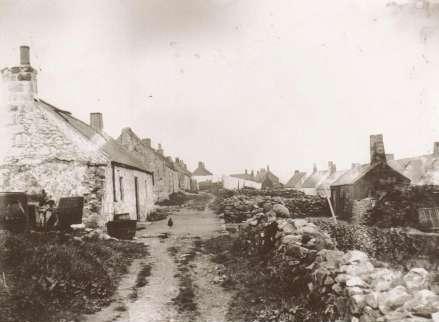
| The Key Players and Ministers |
Robert Buchan, who was proprietor of the estate of Portlethen at that time, had built a Roman Catholic Chapel around 1635 which gradually fell into disuse and then came to be used as a Presbyterian place of worship. This fit in well with the recommendations, in 1649, from the Presbytery of Aberdeen who recognised the need for erecting a place of worship at Portlethen. There was no need to build a new church when there was an unused one in place already. This original church was popularly known as the “Red Kirk” because of the red tiles that were on its roof.
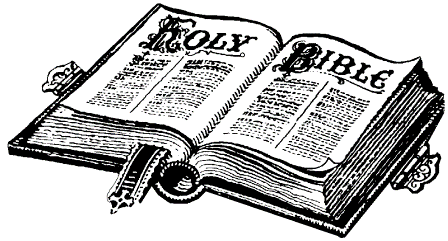 At the
beginning of the 18th century, the parish ministers held
regular services in this chapel, usually on Sunday afternoons, and
considerable attention was devoted to the spiritual requirements of the
district. By 1711 the resident ministers were in the habit of attending
the parish church on a Sunday forenoon and a special space was set apart
to accommodate them and this continued for many years. So jealously
guarded had these clerical interests became, that when a Muchalls
clergyman obtruded by preaching in the chapel in 1742, the parish
minister resolved “to have him prosecuted for so doing”.
At the
beginning of the 18th century, the parish ministers held
regular services in this chapel, usually on Sunday afternoons, and
considerable attention was devoted to the spiritual requirements of the
district. By 1711 the resident ministers were in the habit of attending
the parish church on a Sunday forenoon and a special space was set apart
to accommodate them and this continued for many years. So jealously
guarded had these clerical interests became, that when a Muchalls
clergyman obtruded by preaching in the chapel in 1742, the parish
minister resolved “to have him prosecuted for so doing”.
Soon thereafter a formal arrangement was agreed so that a Mr. Wilkins, a licentiate of the Church of Scotland, undertook to preach on alternate Sundays in Portlethen Church and at the Sod Kirk of Fetteresso, three miles distant in the northern part of the parish of Fetteresso. After Wilkins death, Portlethen Church was sometimes occupied by a parish minister but occasionally was taken by “any strolling or self licensed preacher who chose to hold forth to the people”.
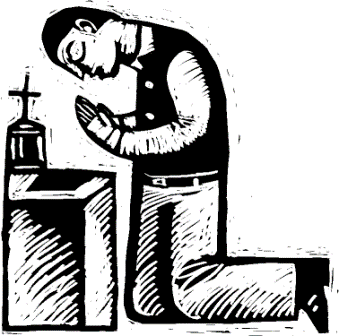 From 1785, the date that the renowned Dr. Morison arrived
in the parish of Banchory-Devenick, a duly licensed minister officiated
at Portlethen Church. At the end of the 18th century this was
a Mr. Scorgie. After he died he was soon followed in the ministry by a
Mr. Pirie, who preached at Portlethen church until his death in 1827.
From 1785, the date that the renowned Dr. Morison arrived
in the parish of Banchory-Devenick, a duly licensed minister officiated
at Portlethen Church. At the end of the 18th century this was
a Mr. Scorgie. After he died he was soon followed in the ministry by a
Mr. Pirie, who preached at Portlethen church until his death in 1827.
Soon after Mr. Pirie’s death, a schoolmaster from Maryculter, William Law, was appointed to preach in the church every Sunday. His first salary was £30 per annum but at Dr. Morison’s instigation in 1832 this was increased to £32, and a pony was also provided to him so that he could ride over from his home in Maryculter.
In 1834 the church was altered and extended so that it provided seats for around 540 worshippers. In 1840 Mr Law was formally ordained minister of Portlethen as a chapel of ease and a manse and a larger salary were provided. It was at that time he left his post as schoolmaster at Maryculter, moved to Portlethen and began working exclusively to the work of the ministry.
In 1856 he was involved in making the “whole of the parish of Banchory-Devenick on the south side of the Dee, with the exception of the estates of Banchory and Ardo” into the quoad sacra church and Parish of Portlethen.


Twelve years later, and due to increasing age and failing health Mr Law had to apply for an assistant and successor which turned out to be William Bruce M.A. Mr Law died, aged 73 in 1870 of apoplexy and from then Mr Bruce took over after a two year “apprenticeship”.
Reverend Bruce was a popular choice as a minister in Portlethen but he was also controversial and outspoken. He was particularly popular amongst those in the fishing villages, to whom he discharged almost the whole functions of a doctor (he was well versed in medicine and medical matters).
Additionally he took a very keen interest in the educational and parochial matters connected with the parish however because he could be outspoken, his views often clashed with others in positions of officialdom which meant that he wasn’t quite as popular with the more “upstanding” members of the congregation as he was with his regular parishioners.
His career wasn’t without controversy and the church courts were forced to suspend him for a period of twelve months due to alleged indiscretions he had committed. This was known as the “Portlethen Fama Case”.
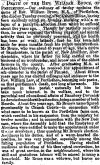 For a more revealing insight into the charasmatic
Reverend Bruce, you should visit the “Myths
For a more revealing insight into the charasmatic
Reverend Bruce, you should visit the “Myths and Mysteries” section to
discover more about the “Portlethen Fama Case” and the “Back to School”
section to understand his role in the parochial school boards. Within
these sections I have enclosed some press reports that were made at the
time which may give an insight into the personality of Reverend Bruce in
words more eloquent than I would ever be able to find.
and Mysteries” section to
discover more about the “Portlethen Fama Case” and the “Back to School”
section to understand his role in the parochial school boards. Within
these sections I have enclosed some press reports that were made at the
time which may give an insight into the personality of Reverend Bruce in
words more eloquent than I would ever be able to find.
Mr Bruce died suddenly in 1883, and is buried in Portlethen churchyard.
Bruce’s successor was Mr Alexander Grant who was elected
minister of Portlethen and ordained in the church in 1883. At that time
the communion role exceeded 650 members and it was noted at that time
that “the duties of minister in such a large and divided fishing
district are of a difficult and trying character”. 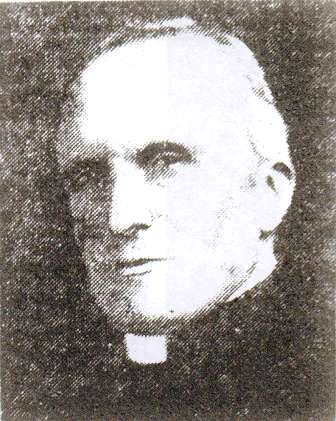
In 1933, and at the age of 75, Reverend Grant celebrated his jubilee and was honoured by the congregation of Portlethen Church and in an address to the people he acknowledged that on his arrival fifty years earlier that Portlethen, Findon and Portlethen were “busy flourishing villages, inhabited by a splendid type of fisherman, who were polite and courteous in their bearing, temperate and thrifty in their habits, brave and skilful in the pursuit of their dangerous calling, and deeply religious”. He also noted that, presently, these same villages were now shadows of their former selves and the departure of the people over intervening years to engage in the trawling, which was more remunerative than line fishing, was a big loss to the district and the church.
There had not been the same migration of the rural population, but the changes there, too, had been marked and there was not one single croft or farm that had the same tenant as it had when he first came to Portlethen. However not everything about Portlethen was on a downward spiral and during Reverend Grant’s tenure he helped secure a friendly society lodge, a postal service that resulted in the door to door delivery of letters and, most importantly, a resident doctor for the area. Reverend Grant continued in the ministry of Portlethen Church until 1939 when he was succeeded by Rev. Alexander Dunn.
Reverend Dunn also had a long tenure at Portlethen and was minister here until 1966. I have been in contact with Reverend Dunn's daughter, Marilyn and I suggested that she could write a few words to sum up his time at Portlethen. The following four paragraphs are Marilyn's words, which gives a brief but insightful look at Reverend Dunn and the type of man that he was.
Alexander Dunn was born and brought up in Beith, Ayrshire and gained a M.A. and B.D. from Glasgow University. His first appointment was in Shetland in the northerly parish of Ollaberry. He moved from there to become assistant in a church extension charge in Edinburgh before coming to Portlethen in 1939. During the war, he was chaplain to the Royal Air Force personnel stationed in Portlethen and supported his parishioners with loving care throughout these dark days.
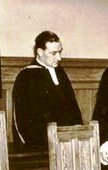 The
installation of the beautiful stained-glass window in the church took
place early in his ministry and was dedicated and unveiled by the
Moderator of the General Assembly of the Church of Scotland. (The
window was presented to the church by Mr David Donaldson, J.P. of
Whincairn, in memory of his parents.)
The
installation of the beautiful stained-glass window in the church took
place early in his ministry and was dedicated and unveiled by the
Moderator of the General Assembly of the Church of Scotland. (The
window was presented to the church by Mr David Donaldson, J.P. of
Whincairn, in memory of his parents.)
In June 1952, he had a chapter, 'The Parish of Portlethen' published in 'The Third Statistical Account of Scotland, The County of Kincardine' in which he praised the people as being 'thrifty, hard-working' and also 'well- read, intelligent and possessed of good sound common sense.' He had many hobbies and interests, enjoying meeting up with members of the church as they made their way to Pittodrie to cheer on the Dons on a Saturday afternoon. He was a keen gardener and kept the Manse in fruit and vegetables, while his wife, Florence, kept hens, geese and turkeys, supplying many in the neighbourhood with eggs. Alexander Dunn also cut peat in Portlethen Moss and provided fuel for the Manse fires over the winter time.
Ill-health forced him to retire in 1966 but his love and concern for the people of Portlethen continued with him until his death in 1978 and many of his former congregation were present at his funeral in Aberdeen.
Additionally, Marilyn, was kind enough to forward me some photographs of church related matters which are now posted in the Photo Galleries section. See "Around Portlethen" for a look at how the church and surrounding lands appeared between the 1940's and 1960's.